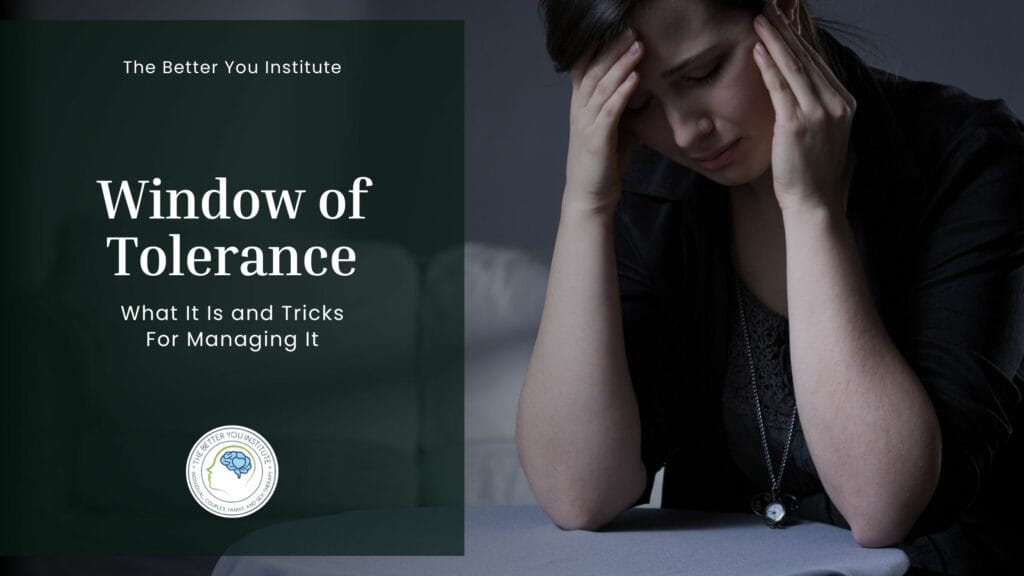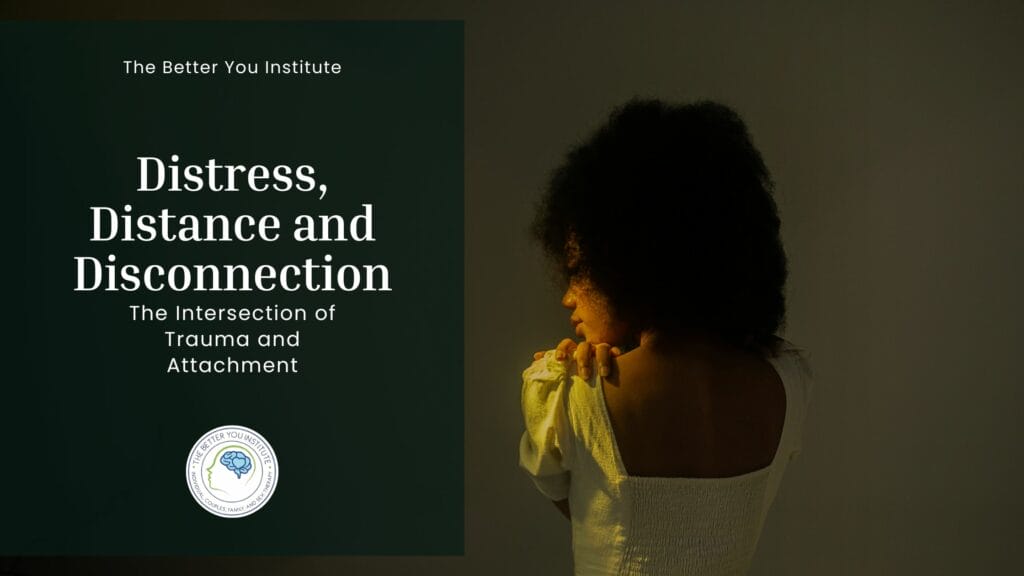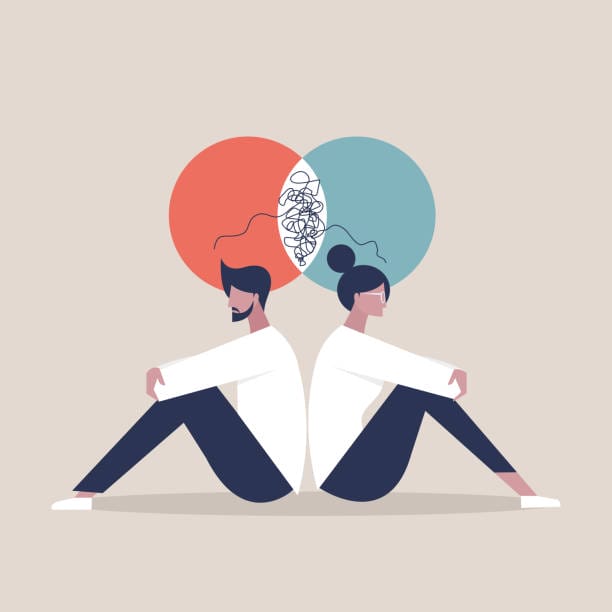Are you always putting others before you? Do you struggle to say no to others? Do you find that you sacrifice or minimize your own needs, feelings, or desires to put others first? And in turn, do these responses sometimes cause guilt, shame, resentment, exhaustion, or bitterness toward others or even yourself? These are traits of people pleasing and while some parts of people pleasing can promote empathy and express sincere care, there are many downsides of people pleasing.
This article will help you understand what people pleasing is, how your childhood may have increased these traits, how people pleasing serves and impacts us, and ways to begin shifting from a people pleaser mode to a you first mode. And don’t be fooled either, we can still put ourselves first and show up for others without having to constantly people please.
Table of Contents
What is people pleasing?
Many of us understand people pleasing as putting others first while usually overextending ourselves, and our time, to others. This runs deeper than just letting a friend go ahead of us in line, or taking on an extra 10 minutes to spend time with a family member. When we people please, we are in one way or another, invalidating and telling ourselves that we don’t matter, or at least not as much as others. We may find it hard to attend and commit to our self-care and boundaries. We begin sacrificing our own time and space to be at the beckoning call for others. We may be more agreeable to do for others. Or we may find ourselves holding in our own need for expression out of what we deem as courtesy to the other person (not wanting to burden them or take up too much space in the conversation when they’re having issues).
Childhood impact:
Our childhood holds many key meanings and understandings to our learned or modeled character traits and our helpful or unhelpful built habits. As we develop in childhood, some of the ways our parents or caregivers showed up and responded to us may have set the stage for a people pleasing role. It is one sign of being raised by narcissists. More so, if our caregivers weren’t showing up or responding to us because this creates mixed understandings of care and love and may have begun the people pleasing role.
If our feelings or actions were shut down (examples: “stop crying, you’re okay,” “why are you sad, don’t be sad,” “stop being so loud, we’re in public,”) or when we had emotions or needs, our caretakers made it about themselves (examples: “why are you doing this to me?!” “I don’t have time for this right now.”), we may in turn have looked to others for approval. Or we may have learned from our parents responses or lack thereof, that our needs are less important than them, or others. Taking on the understanding or narrative that your needs or feelings are less important, smaller, or a burden are due to the internalized belief that to gain approval, love, or to be a good person, is to put others ahead of us. People pleasing through the childhood lens usually stems from a combination of how the family/caretaker responded to the child and set a precedence for the people pleasing habits to develop.
- Poor boundaries – Needs not being met or respected
- Poor communication
- Being put in the “mediator role” – Think of a family fight and the parents or family members ask you to pick sides.
- Invalidation – Showing lack of care or support for the child. “That didn’t really happen,” “Get over it,” “My feelings/choices/beliefs mean or matter more than yours,” “because I said so, that’s why,” “because I’m the parent and you’re the child.”
- Parentification at a young age – When a child assumes the role of the parent and takes on age inappropriate demands or tasks at the request of the parent. This can lead to the belief that you have to give up your role and take on a role for someone else.
- Limited expression of self
- Overextension of helping others – Parents constantly have you doing tasks for others and highlighting that others need to come first
- Intergenerational trauma – Depending on trauma history, people pleasing traits may be passed down through generations
Some questions here to ask yourself are –
- What roles did your caretakers play in showing up for you?
- How was empathy and being there for others modeled to you?
- Were you able to set boundaries for yourself?
- How did your parents, family, and friends respond to your needs and boundaries?
- If your own needs or feelings were shut down, how did you respond?
- What was the balance or understanding you learned of how to put yourself first and still show up for others?
- Did you get more praise for doing things for others and limited praise for taking time for yourself?
How people pleasing serves us:
People pleasing isn’t always a bad thing, we just want to make sure it’s not devaluing our own needs and care. Our brains and bodies tend to be very efficient and not want to do anything extra. That said, our brain took on protective measures of people pleasing to avoid something else that it deemed as more difficult or challenging at one time or another. Therefore, in some ways, this role has served us. Maybe it protected us when things got to be too much? Maybe it helped us detach or distract by putting our focus and energy into helping others? Maybe it amplified our service to show up for others? Here are some ways this role served us:
- Helped us keep the peace or stay protected in certain situations
- Parents with mental health issues can take up a lot of emotional space. Children learn to make it through the day without getting their parent angry and having outbursts or the parent completely shutting down and not feeding them dinner. The child learns that they should keep their emotions to themselves so as to not trigger their parent. Thus, putting their parent’s mental health and emotional needs before their own.
- Your family tends to make you the brunt end of their jokes. If you fought back, they’d get meaner. Over time, you learned to take their jokes with stride as that felt better than getting vulnerable with your needs and them shutting those needs down. You may have even started to believe some of their jokes and taken them on as your identity “you’re the emotional one, you’re the fat one, you’re the dumb one.. in your family.” Thus, you connected and fit in with your family and avoided negative feelings caused by their rejection.
- Kept others in our circle
- If I keep doing this for others they will stick around and I won’t be alone. Think: paying for meals, always being the driver to events, saying yes to things you don’t want to say yes to, etc.
- Helped us be good caretakers to others
- You learned early on to care for others- cooked dinner for your siblings because mom was working late, checked in on dad when mom berated him in front of his coworkers at the picnic, comforted your sister when mom bullied her – all of this helped you feel comfortable in a caretaking role
- Amplified our empathy for others
- By experiencing hardships in your life (alcholic mother, absent dad, death of loved ones, sexual trauma, bipolar sibling, etc.) your worldview becomes shaped by these traumas. You learn early on that people have a backstory because you have a backstory. You tend to be able to read between the lines or sense things in others better than they can articulate it themselves sometimes because that’s what you had to do growing up.
- Gave us more money or opportunity
- People pleasers tend to not rock the boat, keep their head down and do what they are told. Peers may refer to you as a brown noser but this gets noticed by bosses or teachers.
However, you can caretake to a fault or have too much empathy that it blinds you to seeing things as they really are.
How it negatively impacts us:
It’s important to notice the red flags that can come from people pleasing. Some examples include:
- Trouble saying no or setting boundaries
- Resentment for others for not caring or not returning the same intention we showed
- Passive Aggressive tendencies
- Guilt and shame. This can have a multitude of layers. Some reasons for guilt and shame can include:
- Blaming ourselves for getting treated poorly.
- Thinking we are undeserving of others’ doing anything for us or sacrificing their time.
- Upset for not liking what we did but feeling like we had to do it anyway
- Ignoring or minimizing our own needs or feelings
- Experiencing physical pain if doing too much or feeling stressed or overextended
- Poor sleep
- Low energy
- Follow along or help even if we disagree or it goes against our values
- Feeling shame of not being there for others
- Racing thoughts
- Exacerbated fear of people leaving if we don’t do the task or show up for them
- Difficulty asking for what we need
- Difficulty accepting help when offered
- Consumed with thoughts of how others perceived us
- Constantly regretting something we said out of fear for how the other person may have felt or thought
- Anxious attachment style
Identifying our people-pleaser actions:
- Poor time management and personal boundaries. This can include:
- Ignoring or stopping everything you want to do to appease the other person
- Overextending your time to help others
- Never saying no
- Always saying yes
- Needing to be the “hero” or “mediator” for validation
- Lacking in self care
- Not filling our needs (hunger, self-care, family planning, etc)
- Being overly agreeable
- Falling behind in our own activities because we are focused on others
While we may now be more aware of how some of these traits serve us both positively and negatively, we want to begin shifting the negative aspects of this to increase our own sense of self and balance our people pleasing and self-serving roles. Like any changes we make, this will take some time to adjust to, especially if these habits have been ingrained since childhood or with us for a long time. By acknowledging the impact this people pleaser role has on you, you are already taking the first step in awareness and can begin to take the next step in taking action. Similarly to the difficulty of making these changes, there may also be difficulty in how others respond or handle these changes. It’s likely that your shift will create change in other peoples lives, given the ways you have been showing up and doing for them and keeping them in a comfortable habit of knowing these things will continue to happen. But in your shifts you will no longer be serving others in this same way, and that may come with increased frustration and push back including disrespect or anger for the new boundaries you set, guilt tripping, or those people leaving you. Try to stay focused on yourself during this change and remember that we can’t be the hero for everyone. By following some of the steps below you can begin to change these unhelpful habits and create new healthy outlooks, relationships, and experiences for yourself and with those around you.
Ways to shift role from people-pleaser to ‘you first’ mode
Understand that we can’t please everyone. It’s unrealistic and not good for anyone. If you’re not at 100%, how can you possibly give 100%. You can’t. What we can do is begin to recognize and learn about our own people pleasing habits, where they came from, and how they affect us so we can start making shifts to a better balance of meeting our needs versus others’ needs. Below are some tools and steps to begin to practice so you can start making some of these changes to be your best support and model.
Personal Exploration Tools:
- Begin to notice and acknowledge your people-pleaser traits and actions
- Am I overly eager to jump in and help someone else
- Do I put others’ needs before my own
- Do I often feel like a burden when I have needs
- Do I struggle to ask for help and accept it when given to me
- Am I constantly wondering what other people are thinking
- How do your people pleasing tendencies serve you or affect you
- I climbed the corporate ladder
- My children are happy
- I’m exhausted all of the time
- I become irritated quickly
- People come to me with their problems
- Gain awareness of the automatic thoughts or responses you usually have
- You say yes before you think about what saying yes actually means for you
- Your thoughts tend to be about other people
- Your feelings tend to be resentment, anger, stressed, or exhausted
- Your idea of “me time” is sneaking away for a shower or going to the grocery store
- Recognize where this trait, thought, feeling, or action is coming from (likely childhood or certain triggers from big events in your life (shame of not doing enough, fear of people leaving, etc)
- Sit in these emotions and process them
Actions to Overcome People Pleasing
- Check in with how often you are doing things for you and begin to implement at least 1 self care activity in your day
- Journal
- Get a massage, pedicure/manicure, facial, etc.
- Go the gym
- Read
- Take a bath
- Watch sports
- Take 5 extra minutes in the car before you come inside after your commute
- Go for a walk
- Stretch
- Work to connect with what’s really important to you, engage in things you value
- This may mean saying no to something you don’t find interesting
- What hobbies have you given up because “life felt too busy”
- Miss a work deadline or two because you want to make it to your child’s soccer game or piano recital
- Use Cognitive Behavioral Therapy (CBT) thought reframing to challenge self-talk and negative thinking patterns
- Validate and self sooth
- Talk to trusted friends or family about this and begin sharing your boundary intentions (Example: “I can no longer be available 24/7 because I need time for my own care.”)
- Use daily mantras or affirmations (Example: “I’m allowed to say no.” “I can put myself first.”)
- Seek therapy to explore patterns and coping further
- Celebrate progress
- Accept setbacks (they’re a part of the process)
- Understand that high stress times (interacting with the family member that played a role in you creating these people pleasing tendencies) will challenge you to stick to your new way of interacting versus old tendencies
You don’t have to continue to stay in the people pleasing role and it’s (mostly) exhausting impacts. If you are interested in exploring these people pleasing habits and ways to shift or cope with them further, give us a call to work with a trained therapist at The Better You Institute at 267-495-4951.
Meet The Author:

Caitlin Siekerka
Licensed Professional Counselor
Caitlin Siekerka, LPC, a Licensed Professional Counselor in Pennsylvania and New Jersey, is dedicated to guiding individuals on their path to finding meaning and purpose. She uses a compassionate, empathetic approach in therapy, helping clients achieve balance and develop coping skills. Specializing in depression, anxiety, self-esteem issues, bipolar disorder, grief, trauma, life transitions, and substance use, Caitlin offers personalized therapy using techniques like CBT, DBT, and mindfulness. An LGBTQ+ ally, she creates a safe space for growth and exploration in Philadelphia. Caitlin holds a master’s in Counseling Psychology from Rosemont College, continually educating herself to provide the best support.
Learn more about Caitlin Siekerka ⇒







